Related Research Articles

Domenico Gaetano Maria Donizetti was an Italian composer, best known for his almost 70 operas. Along with Gioachino Rossini and Vincenzo Bellini, he was a leading composer of the bel canto opera style during the first half of the nineteenth century and a probable influence on other composers such as Giuseppe Verdi. Donizetti was born in Bergamo in Lombardy. At an early age he was taken up by Simon Mayr who enrolled him with a full scholarship in a school which he had set up. There he received detailed musical training. Mayr was instrumental in obtaining a place for Donizetti at the Bologna Academy, where, at the age of 19, he wrote his first one-act opera, the comedy Il Pigmalione, which may never have been performed during his lifetime.

Belisario (Belisarius) is a tragedia lirica in three acts by Gaetano Donizetti. Salvadore Cammarano wrote the Italian libretto after Luigi Marchionni's adaptation of Eduard von Schenk's play, Belisarius, first staged in Munich in 1820 and then in Naples in 1826. The plot is loosely based on the life of the famous general Belisarius of the 6th century Byzantine Empire.

La Cenerentola, ossia La bontà in trionfo is an operatic dramma giocoso in two acts by Gioachino Rossini. The libretto was written by Jacopo Ferretti, based on the libretti written by Charles-Guillaume Étienne for the opera Cendrillon with music by Nicolas Isouard and by Francesco Fiorini for Agatina, o la virtù premiata with music by Stefano Pavesi. All these operas are versions of the fairy tale Cendrillon by Charles Perrault. Rossini's opera was first performed in Rome's Teatro Valle on 25 January 1817.
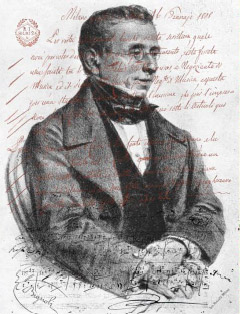
Casa Ricordi is a publisher of primarily classical music and opera. Its classical repertoire represents one of the important sources in the world through its publishing of the work of the major 19th-century Italian composers such as Gioachino Rossini, Gaetano Donizetti, Vincenzo Bellini, Giuseppe Verdi, and, later in the century, Giacomo Puccini, composers with whom one or another of the Ricordi family came into close contact.

Marino Faliero is a tragedia lirica, or tragic opera, in three acts by Gaetano Donizetti. Giovanni Emanuele Bidera wrote the Italian libretto, with revisions by Agostino Ruffini, after Casimir Delavigne's play. It is inspired by Lord Byron's drama Marino Faliero (1820) and based on the life of Marino Faliero (c.1285-1355), the Venetian Doge.

Il Pigmalione (Pygmalion) is a scena lirica in one act by Gaetano Donizetti. The librettist is unknown, but it is known that the libretto was based on one by Antonio Simeone Sografi for Giovanni Battista Cimador's Pimmalione (1790), in turn based on Jean-Jacques Rousseau's Pygmalion and ultimately based on Book X of Ovid's Metamorphoses. Sografi's libretto was also used for an opera by Bonifacio Asioli (1796).
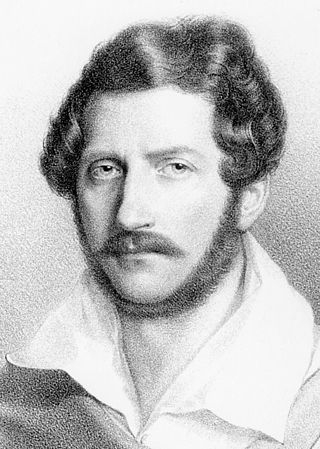
Gianni di Parigi is an 1839 melodramma comico in two acts with music by Gaetano Donizetti to a libretto by Felice Romani, which had previously been set by Francesco Morlacchi in 1818 and by Giovanni Antonio Speranza in 1836.

Giovanni Ruffini was an Italian writer and patriot of the early 19th century. He is chiefly known for having written the draft of the libretto of the opera Don Pasquale for its composer Gaetano Donizetti.
Andrea Leone Tottola was a prolific Italian librettist, best known for his work with Gaetano Donizetti and Gioachino Rossini.

Gaetano Rossi was an Italian opera librettist for several of the well-known bel canto-era composers including Gioachino Rossini, Gaetano Donizetti, and Saverio Mercadante in Italy and Giacomo Meyerbeer in one of his early Italian successes. Other composers with whom he worked included Simon Mayr, a composer and Donizetti's teacher, as well as the prolific Giovanni Pacini.

Anthony Damian Ritchie is a New Zealand composer and academic. He has been a freelance composer accepting commissions for works and in 2018 he became professor of composition at The University of Otago after 18 years of teaching composition. Since 2020 he has been head of Otago's School of Performing Arts, a three-year position. His works number over two hundred, and include symphonies, operas, concertos, choral works, chamber music and solo works.
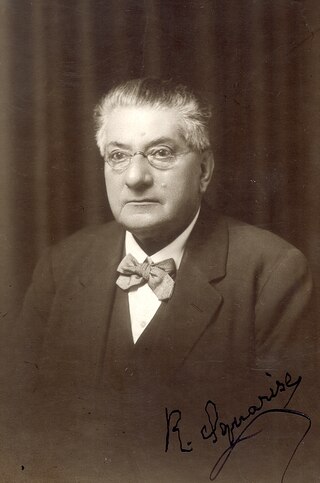
Raffaello Squarise, also known as Raphael Squarise, was an Italian violinist, teacher, conductor, and composer, who settled in Adelaide, South Australia, and Dunedin, New Zealand. He was a pioneer in the establishment of classical music in New Zealand.
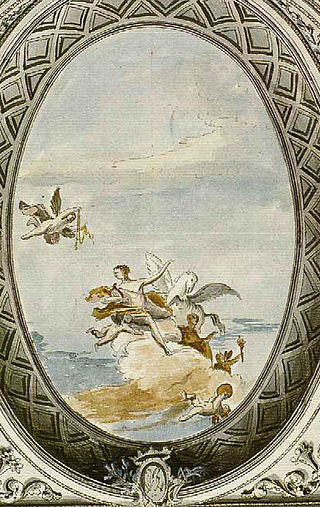
The Teatro San Moisè was a theatre and opera house in Venice, active from 1620 to 1818. It was in a prominent location near the Palazzo Giustinian and the church of San Moisè at the entrance to the Grand Canal.

Philip Gossett was an American musicologist and historian, and Robert W. Reneker Distinguished Service Professor of Music at the University of Chicago. His lifelong interest in 19th-century Italian opera began with listening to Metropolitan Opera broadcasts in his youth. Divas and Scholars: Performing Italian Opera, a major work on the subject, won the Otto Kinkeldey Award of the American Musicological Society as best book on music of 2006.
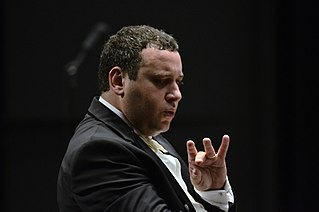
Antonino Fogliani is an Italian conductor.
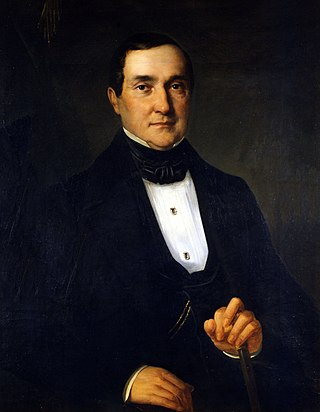
Bartolomeo Merelli was an Italian impresario and librettist, best known as the manager of the La Scala Milan opera house between 1829 and 1850, and for his support for the young Giuseppe Verdi.
Stuart Hoar is a New Zealand playwright, teacher, novelist, radio dramatist and librettist.
John Drummond is a New Zealand musicologist, academic, and composer.
Giuseppe Balducci was an Italian composer, primarily of operas. Born in Iesi, he spent most of his career in Naples and was one of the originators of the "salon opera" genre, the forerunner of chamber opera.